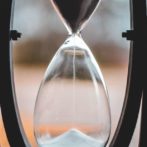Snapshots of Dementia: If You See Something, Say Something
(Israel Palacio on Unsplash) He’s quirky.” Anyone who’s known Tom through the years will agree that I wasn’t wrong when I described him this way to a group not long after we had come to the final church he served as minister of music. He’s a musician; I’m a writer—we pretty much understood that quirkiness was part of the package when we married each other. But now, I wonder just where his quirkiness stopped and the dementia behaviors began. And I don’t suppose I’ll ever know. I missed many of the early signs that Tom was living with dementia—partly because his neurologist and others kept telling me he was fine. But because I didn’t know about the behavioral issues dementia can cause, I am writing about them now so perhaps someone else won’t have to wait as long for a diagnosis as we did. Not everyone LWD exhibits these same behaviors, and not everyone LWD has as many behavioral issues as those with a variant that affects the frontal lobe. But in addition to those I noted last week, here are some more of the atypical behaviors we saw in Tom even before he received his dementia diagnosis: — IMPULSIVE/RECKLESS ACTIONS: I have written about how he was blackmailed via social media and later gave away thousands of dollars to online scammers. Since he was always frugal, this was out of character financially as well as morally. I am still appalled at the way scammers prey on the vulnerable, but I wish I had recognized just how vulnerable he was much sooner. — LACK OF MOTIVATION: I also wrote not long ago about how Tom stopped paying attention to lawn care. This same lack of motivation, in large measure, resulted in him no longer playing his trumpet (formerly a top priority for him). After he hurt his lip in a challenging concert in 2016, he received a detailed plan to help him heal and rebuild his muscle strength, but he never followed through. He still tells people he’s a professional musician; the sad truth is that he hasn’t practiced consistently since he hurt his lip nearly seven years ago, more than three years before his diagnosis. — ODD PERSONAL HABITS: One day, I found him laying a towel down over the bathmat as he prepared to take a shower. When I asked about it, he said he “had never liked to get the bathmat wet.” It took a while for me to realize this was a dementia behavior, not a longtime preference that I had somehow missed. I remember watching the final funeral he officiated nearly five years ago and noticing how he constantly licked his lips as...
Read More







